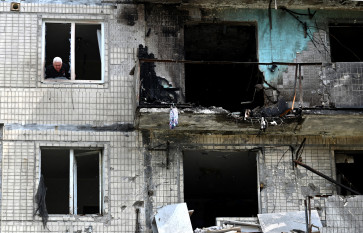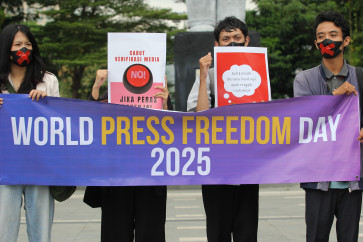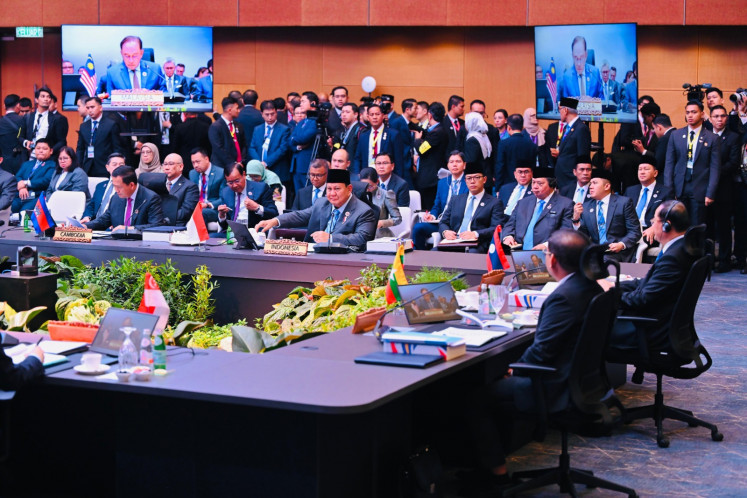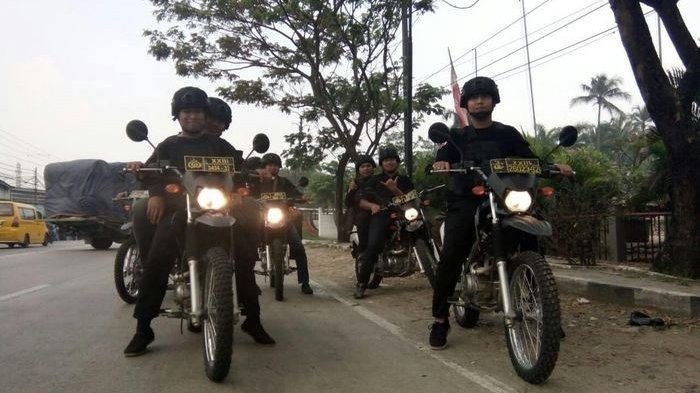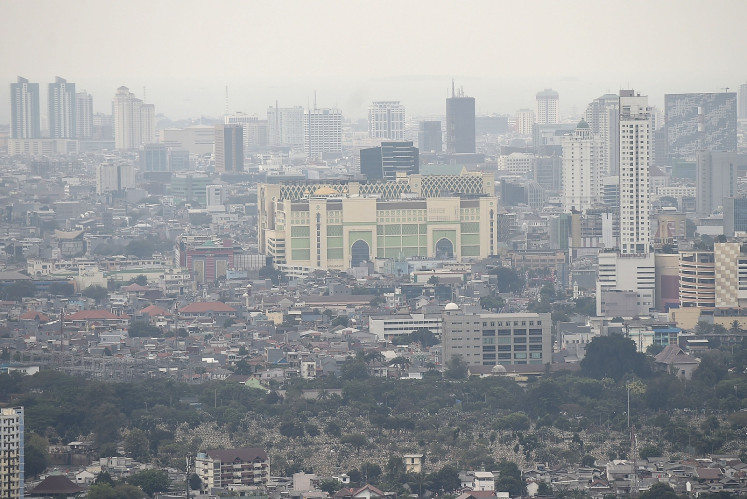Reintegration after three years of Helsinki accord
The Helsinki agreement between the Government of Indonesia and the Free Aceh Movement (GAM) has been a strategic step in rebuilding Aceh and the national integration of Indonesia
Change text size
Gift Premium Articles
to Anyone

The Helsinki agreement between the Government of Indonesia and the Free Aceh Movement (GAM) has been a strategic step in rebuilding Aceh and the national integration of Indonesia. Three years have passed since the memorandum of understanding (MoU) was signed Aug. 15, 2005.
There has been plenty of progress: Decommissioning for both GAM and the Indonesian Military, amnesty and the release of political prisoners, ratification of the Law on Governing Aceh and the transition to democratic governing in 2007.
Despite these developments, much work still remains up front. Weapons can still be found in the community, not all political prisoners have been released, the reintegration has been rather slow and lacks conceptual guidance and the governance law was perceived as not in keeping with the spirit of the MoU. In the past two years, sporadic violence has increased and armed criminals threaten public order.
Studies by the Aceh Institute show reintegration and the establishment of a truth and reconciliation commission are the two most selected points, from among these many stumbling blocks, to be addressed immediately. These two points were explicitly called for both in the MoU and the governance law but no action has been taken.
In fact, there is a strong tie between reintegration and reconciliation. Reintegration brings former combatants back into society and ensures they are treated as regular citizens whereas reconciliation is about ensuring there will be a shared vision for the future through treating the past correctly and making way for wrongs to be forgiven. These points deserve special attention lest the existing peaceful situation deteriorate or the peace process be inhibited.
A strong correlation between reintegration problems and the currently increasing incidents of armed robberies has been documented. Data from the provincial-level Criminal Investigation Directorate of the Aceh Police shows there were 218 cases of armed robberies and other street crimes from August 2005 to February 2008. Of the 218, only 96, 44 percent, have been investigated and, unfortunately, more than 90 percent of defendants who testified claimed they were ex-combatants.
From the sociopsychological standpoint, these figures do not necessarily capture the right proportions since the reasons these defendants identify with GAM are wide ranging. They may identify themselves as GAM to feel secure or proud of themselves, to bolster their self-esteem or simply to make a rebellious gesture directed at local government whose officials are their colleagues. However, if even half of the reported percentage is accurate, it is still a stark finding which both national and local governments and the Aceh Reintegration Agency (BRA) ought to heed.
The slow pace of reintegration has become a threat to the sustainability of the peace process. It makes sense to assume ex-combatants have been involved in armed robberies. Since they lived many years as guerrillas they had no opportunity to build competencies to help them in a peacetime job market; not all ex-combatants have access to ways to earn a living as they are not all so fortunate as to have connections; and the armed thugs are clearly well armed and trained.
One study found these three conditions were reinforced by ex-combatants' perception they face a high degree of relative deprivation. They perceived the existing peace and its rewards was the outcome of their efforts during the conflict, and they feel particularly excluded when they see some of their colleagues in good political positions or otherwise well placed.
This sense of exclusion is exacerbated because, as prolonged conflict has encouraged people to adopt authoritarian attitudes, group authoritarianism reigns strong at the community level.
These prevailing attitudes allow former combatants to justify their aggression and allow the community to tolerate the strong-arm rule implied by that aggression once it happens. We can see how reintegration can trigger an increase in violent crime. Slow reintegration can lead to more sporadic violence as many people remain unprepared to compete in the job market.
Two other factors which directly correlate with the increased crime rate are the high levels of unemployment and poverty in Aceh. Since late 2007 many NGOs left Aceh once the post-tsunami reconstruction and rehabilitation projects were completed. Thus more positions were eliminated and many skilled workers became unemployed.
Current poverty levels in Aceh remain high. The World Bank reported in 2006 that 28.69 percent of the population were living below the poverty line, and the Central Statistics Agency reported a similar figure of 26.65 percent for 2007.
It is therefore urgent the central government pay closer attention to progress in Aceh. High-ranking staff at the BRA in Banda Aceh admit there are ambiguities about authority. One solution would be to manage reintegration efforts from the national echelon. Like the BRR, which dealt with post-tsunami rehabilitation and reconstruction activities, reintegration could also be recast as a national concern. This definitive authority could enable such a national agency to develop a comprehensive blueprint for reintegration and accelerate the transition to peace in Aceh.
It is a fact the existing partial initiative is not enough, nor is the current funding level. Direct involvement by the central government could help rectify both.
The writer is manager for information and analysis at the Aceh Institute, Banda Aceh. He can be reached at Yfjzain@yahoo.com


